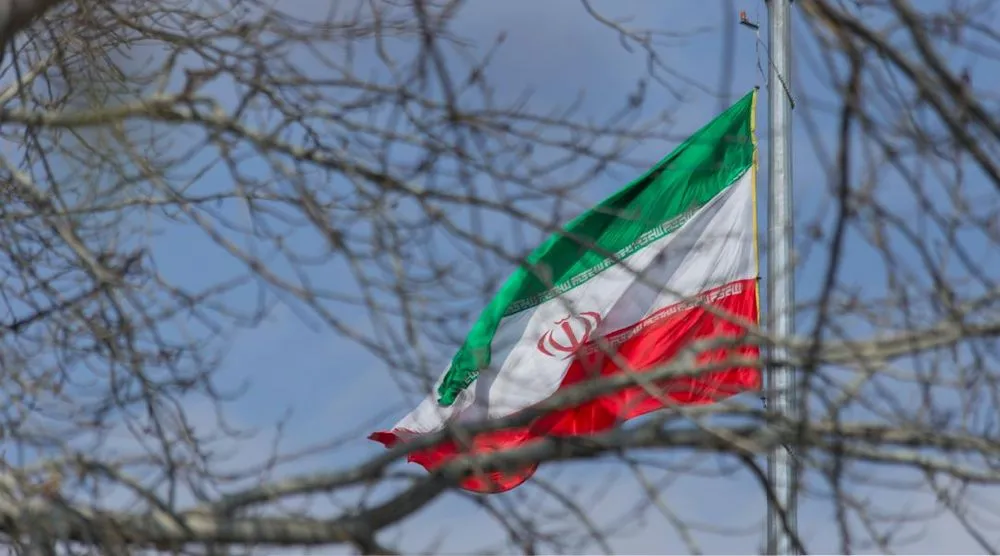Iran shutters mobile networks, Instagram, WhatsApp amid protests
Officials in Iran appear to be limiting access to mobile networks and communication platforms like Instagram and WhatsApp amid widespread protests over the alleged police killing of 22-year-old Mahsa Amini.
Several internet access watchdogs reported nationwide outages for people using MCI (First Mobile), Iran's leading mobile operator, and Rightel, as well as partial outages for Irancell, on top of a ban on Instagram and WhatsApp.
⚠️ #Iran is now subject to the most severe internet restrictions since the November 2019 massacre.
— NetBlocks (@netblocks) September 21, 2022
▶️ Mobile networks largely shut down (MCI, Rightel, Irancell - partial)
▶️ Regional disruptions observed during protests
▶️ Instagram, WhatsApp restrictedhttps://t.co/8cCHIJA2Oi
Amini — who also went by her Kurdish first name Jhina — died last Friday while in the custody of the Islamic Republic’s morality police after being detained for what the authorities described as an improper hijab. Since then, protests have spread throughout much of the country, and seven demonstrators have been killed as of Wednesday, according to human rights organizations.
The Ministry of Foreign Affairs and Communication Ministry in Iran did not respond to requests for comment. Reuters reported on Wednesday that the minister of communication claimed to have been misquoted by local media when he suggested that the government may restrict internet access.
NetBlocks, an organization that tracks internet disruptions around the world, said WhatsApp servers were disrupted Wednesday on multiple internet providers just hours after Instagram was blocked.
WhatsApp and Instagram did not respond to requests for comment but on Thursday, the companies responded to the situation in messages on Twitter.
We exist to connect the world privately. We stand with the rights of people to access private messaging. We are not blocking Iranian numbers. We are working to keep our Iranian friends connected and will do anything within our technical capacity to keep our service up and running
— WhatsApp (@WhatsApp) September 22, 2022
People in Iran are being cut off from online apps and services. Iranians use apps like Instagram to stay close to their loved ones, access timely and important information and stay connected to the rest of the world. We hope their right to be online will be reinstated quickly.
— Adam Mosseri (@mosseri) September 22, 2022
The core of our mission is to connect people privately. We are not intentionally disrupting access to our platform, nor are we blocking Iranian numbers. We do everything in our technical power to maintain our services and enable the use of all users in the world.
— WhatsApp (@WhatsApp) September 22, 2022
Alp Toker, director of NetBlocks, told The Record that they have been tracking a rapid escalation of internet restrictions since Friday as unrest grew over the death of Amini. There were internet blackouts in Kurdistan province, beginning on Monday, and some parts of the capital Tehran were also disrupted.
Toker said there was a near total blackout of connectivity near her hometown in Iran's Kurdistan province where her funeral was held and where protests have centered.
“Perhaps the most striking is the restriction of Instagram today – Iran has already banned other platforms such as Twitter and Facebook for several years, with Instagram being a notable exception and one of the few remaining outlets for expression,” Toker said.
“That is gone now, with NetBlocks metrics showing Instagram CDN [content delivery network] backends and the website are disrupted across all major network operators, indicative of filtering at Iran's national gateway. This is going to get the public's attention, particularly with a discontented younger generation speaking out.”
While many in Iran have typically gotten around the bans of platforms like Twitter and Facebook through the use of tools like Virtual Private Networks (VPNs), the type of internet disruptions instituted on Wednesday affects connectivity “at the network layer and cannot generally be worked around with the use of circumvention software or VPNs,” NetBlocks said.
As protests over the situation have grown, platforms like Instagram and Twitter have become key rallying points for protesters, with dozens of videos of women burning their hijabs going viral.
These women in #Iran’s northern city of Sari are dancing and burning their headscarves… anti-regime protests have now spread to dozens of cities from north to south, east to west… all triggered by the death of #MahsaAmini while in the custody of Iran’s morality police. pic.twitter.com/BBDvgC5L1w
— Rana Rahimpour (@ranarahimpour) September 20, 2022

An April report from internet access nonprofit Access Now found that Iran shut down access to the internet at least five times in 2021, the second most of any country they tracked.
Meanwhile, hackers associated with the Anonymous group claimed on Wednesday morning to be behind attacks on several websites affiliated with the Iranian government, in solidarity with the protesters.
Jonathan Greig
is a Breaking News Reporter at Recorded Future News. Jonathan has worked across the globe as a journalist since 2014. Before moving back to New York City, he worked for news outlets in South Africa, Jordan and Cambodia. He previously covered cybersecurity at ZDNet and TechRepublic.



